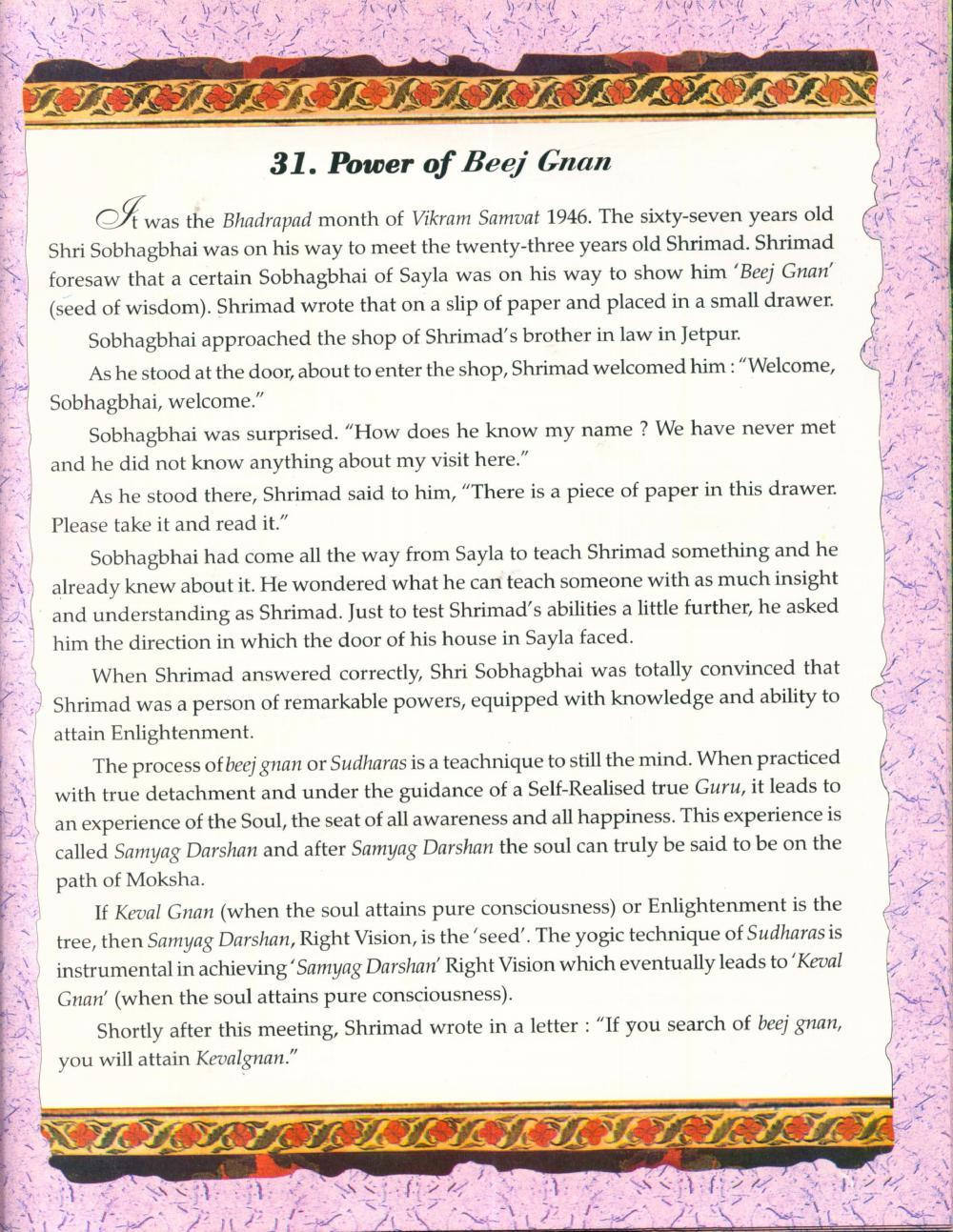________________
D
31. Power of Beej Gnan
It was the Bhadrapad month of Vikram Samvat 1946. The sixty-seven years old
Shri Sobhagbhai was on his way to meet the twenty-three years old Shrimad. Shrimad foresaw that a certain Sobhagbhai of Sayla was on his way to show him 'Beej Gnan' (seed of wisdom). Shrimad wrote that on a slip of paper and placed in a small drawer.
Sobhagbhai approached the shop of Shrimad's brother in law in Jetpur.
As he stood at the door, about to enter the shop, Shrimad welcomed him: "Welcome, Sobhagbhai, welcome."
Sobhagbhai was surprised. "How does he know my name? We have never met and he did not know anything about my visit here."
As he stood there, Shrimad said to him, "There is a piece of paper in this drawer. Please take it and read it."
Sobhagbhai had come all the way from Sayla to teach Shrimad something and he already knew about it. He wondered what he can teach someone with as much insight and understanding as Shrimad. Just to test Shrimad's abilities a little further, he asked him the direction in which the door of his house in Sayla faced.
When Shrimad answered correctly, Shri Sobhagbhai was totally convinced that Shrimad was a person of remarkable powers, equipped with knowledge and ability to attain Enlightenment.
The process of beej gnan or Sudharas is a teachnique to still the mind. When practiced with true detachment and under the guidance of a Self-Realised true Guru, it leads to an experience of the Soul, the seat of all awareness and all happiness. This experience is called Samyag Darshan and after Samyag Darshan the soul can truly be said to be on the path of Moksha.
If Keval Gnan (when the soul attains pure consciousness) or Enlightenment is the tree, then Samyag Darshan, Right Vision, is the 'seed'. The yogic technique of Sudharas is instrumental in achieving 'Samyag Darshan' Right Vision which eventually leads to 'Keval Gnan' (when the soul attains pure consciousness).
Shortly after this meeting, Shrimad wrote in a letter: "If you search of beej gnan, you will attain Kevalgnan."




